Understanding the Cycle of Addiction:
“And this is the condemnation, that light is come into the world, and men loved darkness rather than light, because their deeds were evil.” (John 3:19)
Active addiction is a complex and devastating cycle that feeds on our most profound, unacknowledged fears. These fears – whether of rejection, failure, or past trauma – silently shape our behaviors and decisions. When left unaddressed, they pull us deeper into destructive patterns. Active addiction thrives on unacknowledged fears, creating a self-perpetuating cycle of:
- Unresolved fears driving addictive behaviors
- Emotional pain that leads to seeking temporary escapes
- Initial relief, which requires increasing intensity
John 3:19 reminds us that people often choose darkness over light due to their evil deeds. Those trapped in addiction frequently choose temporary relief over facing their deepening fears, leading to an intensifying cycle of despair and escape.
In Reality, Acting Out Perpetuates & Intensifies Fear:
“Cast thy burden upon the Lord, and he shall sustain thee: he shall never suffer the righteous to be moved.” (Psalm 55:22)
As these fears intensify through avoidance and the natural consequences of living a life incongruent with the rest of society, emotional despair becomes increasingly unbearable. The weight of anxiety, shame, and pain grows too heavy to carry.
In response, we desperately seek escape through temporary solutions – turning to a variety of unhelpful coping mechanisms, mindless distractions, emotional numbness, or insane addictive behaviors. As many an addict knows, these false refuges promise relief but only deepen our entrapment. Here, we have an excellent opportunity to come to God with our filthy rags and unload the burdens of our fears to the One who can sustain us! Oh, that blessed light from God that blinds us who have lived in darkness for so long!
In Reality, Acting Out Blocks True Connection:
“For the Spirit of God doth not make us spirits, but the Spirit of God dwelleth in us, and we are the temples of God.” (1 Corinthians 3:16)
In our minds, fear appears as the problem, and lust seems like the solution. Yet this illusion masks the truth—fear isn’t the root issue but a symptom, and acting out only blocks genuine solutions. Acting out prevents us from forming meaningful connections in several key areas: We become disconnected from God, unable to pray or experience spiritual growth; our relationships with others suffer as we avoid vulnerability and genuine interactions; and most critically, we lose touch with our emotions, making it impossible to face, process, and ultimately heal from our underlying issues.
1 Corinthians 3:16 teaches that we are temples of God where His Spirit dwells. Through addiction and acting out, we withdraw from God. When we engage in addictive behaviors, we defile this temple and block our spiritual connection, hindering our ability to pray or experience spiritual growth. Only when we humble ourselves, confess our wrongs before God, recommit, and surrender control of our hearts to the Holy Spirit do we regain that True Connection and Power to live for God. Addiction affects not just our spiritual life but our entire being—our relationships with others and our emotional well-being. This comprehensive disconnection prevents us from living as the holy temples we’re meant to be, where God’s Spirit can dwell and work within us.
In Reality, Acting Out Is A Way Of Medicating From Self:
“Therefore if any man be in Christ, he is a new creature: old things are passed away; behold, all things are become new.” (2 Corinthians 5:17)
The core truth is that fear isn’t the root problem—it merely reveals what lies beneath: ourselves. Fear acts as a spotlight, illuminating our character defects and internal struggles. Like a mirror, it reflects our deepest insecurities, showing us parts of ourselves we’d rather ignore.
When we examine these fears closely, we discover they stem from our flawed attitudes, distorted values, and limiting beliefs. These manifest in various ways:
- Through our thoughts, negative self-talk, catastrophizing, and self-defeating patterns
- In our feelings: shame, inadequacy, and unworthiness
- Through our behaviors, avoidance, self-sabotage, and destructive habits
Though facing these uncomfortable truths about ourselves can feel overwhelming, it’s essential to remember that this self-awareness is not meant to condemn us—it’s meant to free us. Recognizing these patterns is the first step toward authentic transformation and lasting freedom.
God’s Path to Freedom and Recovery
“For God hath not given us the spirit of fear; but of power, and of love, and of a sound mind.” (2 Timothy 1:7)
Breaking free from addiction requires a comprehensive approach that combines spiritual strength, practical actions, and emotional healing:
- Deepening your spiritual connection through prayer and faith in God’s promises
- Building and maintaining strong support networks in your community
- Developing emotional awareness and practicing vulnerability
- Confronting and addressing underlying fears with courage
- Creating healthy coping mechanisms through mindfulness and professional guidance
- Cultivating self-compassion, gratitude, and resilience
How It Relates To You:
“Cast thy burden upon the Lord, and he shall sustain thee: he shall never suffer the righteous to be moved.” (Psalm 55:22)
The journey to freedom from addiction starts with a single step – acknowledging your fears and surrendering them to the Lord. Just as the psalm encourages us to “cast thy burden upon the Lord,” embracing healing solutions through spiritual connection opens the door to genuine recovery. God promises He “shall sustain thee,” which we see through practical actions like attending meetings, reaching out for help, and practicing self-care. These steps demonstrate trust in God’s sustaining power while building authentic relationships and engaging in honest self-reflection. Through faith, courage, and support networks, we can break free from addiction’s grip to discover the peace and purpose God intended for our lives, knowing that each small victory moves us closer to freedom.
Reflection Questions:
- What unacknowledged fears are driving your addictive behaviors?
- How does your addiction serve as an escape from emotional pain?
- What actions will you take today to strengthen your connection with God, build authentic relationships, and process your emotions healthily?
Scriptures to Remember:
“He healeth the broken in heart, and bindeth up their wounds.” (Psalm 147:3) “Who forgiveth all thine iniquities; who healeth all thy diseases.” (Psalm 103:3)
These powerful verses reveal God as the ultimate healer of emotional and spiritual wounds. They speak directly to addiction recovery in two ways:
- Psalm 147:3 shows God’s heart for healing emotional brokenness—crucial for those battling addiction since emotional pain often drives addictive behaviors
- Psalm 103:3 promises God’s complete forgiveness and healing power, offering hope for recovery from both spiritual and physical aspects of addiction
Breaking free from addiction demands patience, courage, and support. While these verses align with practical recovery tools like 12-step programs, counseling, and support groups, they remind us that true healing flows from God. This spiritual foundation is vital because lasting recovery requires both practical support and spiritual healing—addressing outward behaviors and the heart’s deep wounds.
Prayer:
Dear Heavenly Father,
I come before You, acknowledging that my spirit of fear is not from You, but You have given me a spirit of power, love, and a sound mind. I surrender my unacknowledged fears, shame, and pain to You, knowing You heal the broken heart and bind up wounds. Please cleanse Your temple within me and restore my connection with Your Holy Spirit. Please grant me the courage to face my deepest struggles, the humility to seek support from others, and the wisdom to develop healthy coping mechanisms. Help me trade the darkness of addiction for Your light and continue to transform me into a new creature in Christ. Thank You for Your promise to sustain me and never let the righteous be moved. Guide me as I learn to cast my burdens upon You and process my emotions honestly and gracefully.
In Jesus’ precious name, Amen.




